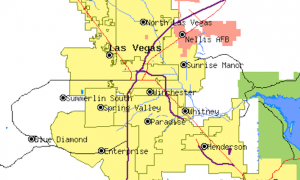With over half of Las Vegas Valley neighborhoods located within a homeowners association, chances are that you may live in one.
When you move into a neighborhood with an association, you are agreeing to abide by certain rules, and you acknowledge that rule breakers may face financial consequences. Understanding the association’s rules and your rights and responsibilities as a homeowner will facilitate harmonious living.
Associations Prevalent in Southern Nevada
Whether you call it a homeowners association, a community association, or a common interest community, unlike other areas of the country, over half of southern Nevada neighborhoods are in an association. These names can confuse out-of-staters and new homeowners, but the concept of all three entities is similar:
- The association is a legal entity registered with the state of Nevada and was created at the onset of your neighborhood’s construction.
- Its responsibility is to maintain your neighborhood’s common areas.
- It has the right to enforce deed restrictions on your home.
In Las Vegas, associations have been established in newer neighborhoods and condominium and townhome developments. Your home may have more than one homeowners association if it’s located in a planned community or in one of the Valley’s master-planned communities, like Summerlin.
Understand the Rule Book
Your association’s rules are found in the “Covenants, Conditions and Restrictions” (CC&Rs) and other governing documents. Per Nevada law, the seller or builder provides you with these documents at the time of purchase, and they become part of your home’s title.
CC&Rs describe a variety of items, such as how residents are elected to your association board, meeting rules, dues, home maintenance requirements, pre-approvals for changes to your property, restrictions on your home’s use, and fines. They also describe the association’s responsibilities for the maintenance of common areas, like parks, pools, a gated entrance, or landscaping.
The rules can vary greatly by association. Some communities, such as the Sun Cities, are age qualified and require residents to be of a minimum age. Others may designate a specific community pool for adults only, while others may provide a pre-approved desert paint palette that will prevent you from painting your mediterranean-style abode in neon polka dots. Some rules will prevent you from turning your home into a rental or will limit the number or size of pets. Fines of different amounts may be levied on those who do not follow the rules.
- Because the rules can vary, it is essential to read and understand all CC&Rs before you buy your home.
- If you do not agree with them, it is simple — do not buy in that neighborhood.
When Problems Arise
Problems can arise even when you understand the rules. Perhaps a neighbor files a complaint or you are notified of a possible violation. CC&Rs list the protocol for conflict resolution: who to contact and how to appeal a violation or fine.
Like policy-based governance, a homeowners association only has the rights that are set forth in its CC&Rs. They cannot make up new rules. In fact, Nevada Revised Statutes Chapter 116 is dedicated to regulations that specifically govern common interest communities.
If you believe that your homeowners association is violating your CC&Rs or NRS 116, you have recourse. Through the State of Nevada Real Estate Division’s Ombudsman for Owners in Common-Interest Communities and Condominium Hotels, you can file a complaint or request an Alternative Dispute Resolution. Contact the Las Vegas-based office at (702) 486-4480 for details.
[cf]skyword_tracking_tag[/cf]







HOAs in Vegas also vary widely in how much they enforce the rules. Typically a seach of newspaper past articles and looking over meeting minutes provided to you in HOA packet from seller, will give you an idea of how serious they are on enforcing rules. Almost every single one will have some illogical rule like needing permission or fiing notice for painting your bedroom or involve fish in rules regulating pets – i.e. “pets are considered cats, dogs, fish, and birds and you may not have more than 2 pets”. lol, yeah, sorry you violated the rules when you bought 3 guppies. Still, if you are not liked by whomever is your neighbors or on the board you could easily find yourself harassed on rules not enforced on anyone else. It doesnt matter if you are right or wrong, what matters is IF you will be harassed and that isnt something you can determine by reading the rules as much as by knowing the community, how the HOA behaves, and yourself.
I’m dealing with over zealous next door neighbor president of HOA, complainant, NO PETS. For 6 years she never let up complaining on our pet on alleged excessive or constant barking, for 6 years family disputed. Brought NJC, Animal Control, invited board members to observed pet, no avail, she continues to alleged pet barking a “nuisance”, big pet comes with big barks, pet rarely barked, barked 2 or 3 times, pet even go 24 hours without barking. HOA and Mgt threatened $1000 fine, liens, law suits, recommended removal of pet. when hoa and management could not collect fine, and made us remove pet. Pet suddenly got sick no choice but to put him to sleep. We believed somebody poisoned our pet with rat poison. 3 of our nearby neighbors she complained gave up pet and moved out of community. dont know what else hoa and mgt do to make us sell property and move out of community.
Great information, I recently moved to Henderson and there was much I didn’t know about HOA, and this was very helpful, I love living here although it’s not the cheapest place to be, it’s still nice. Thanks for the great information.